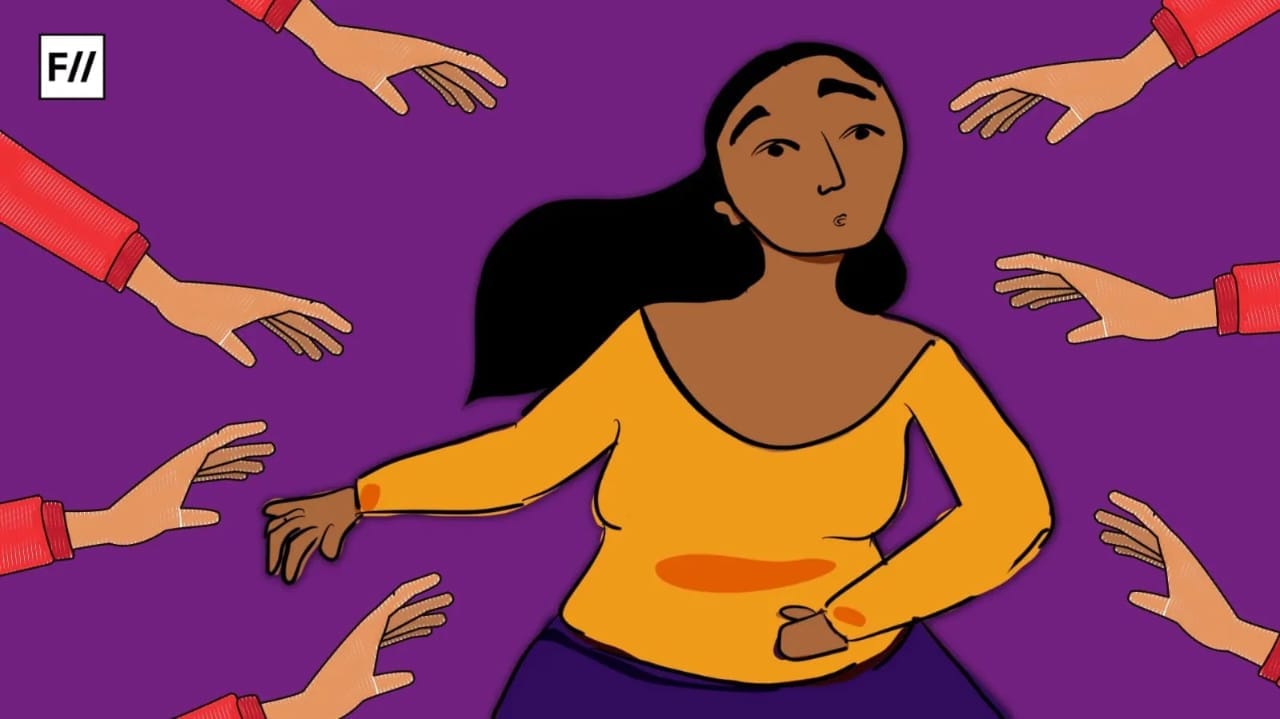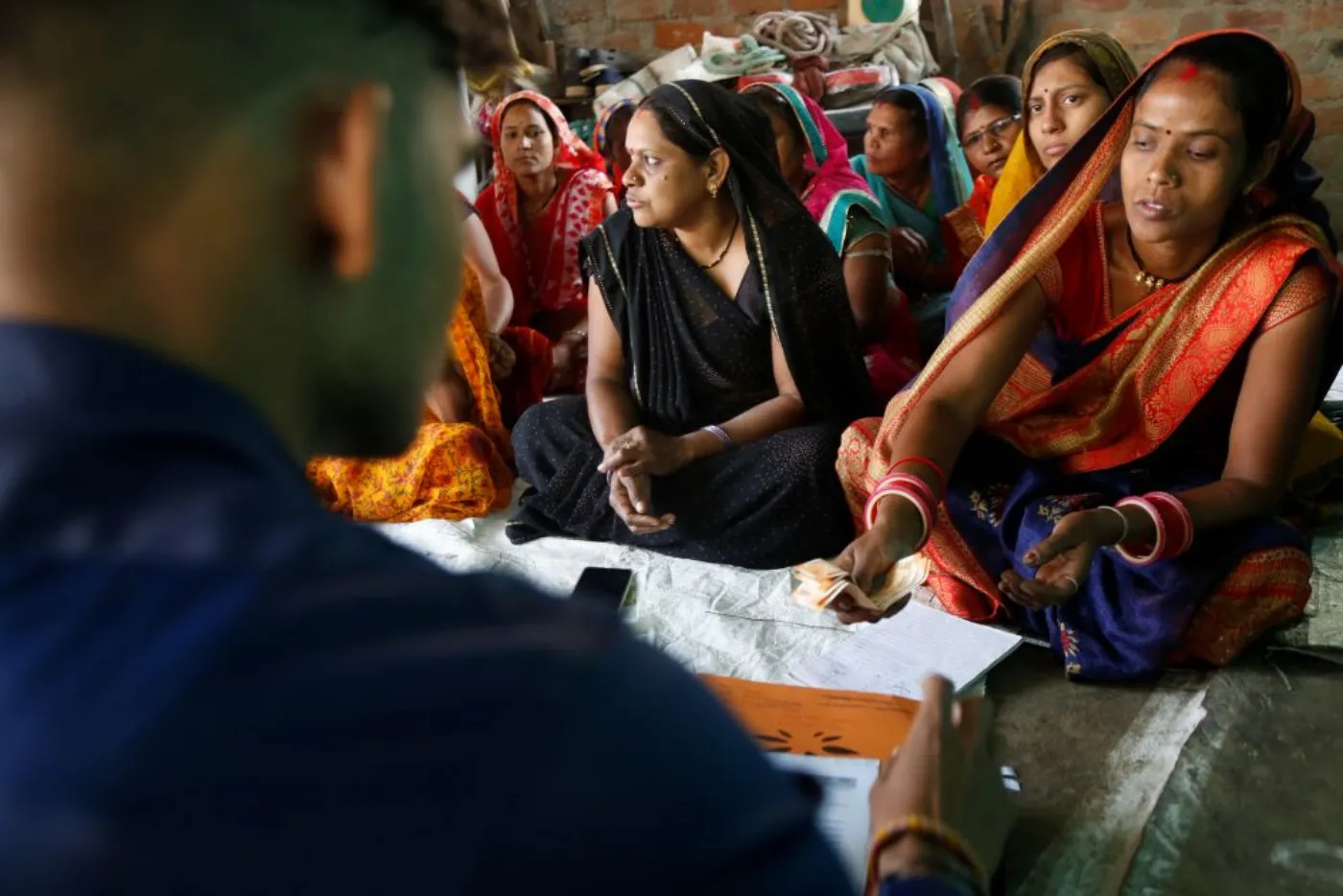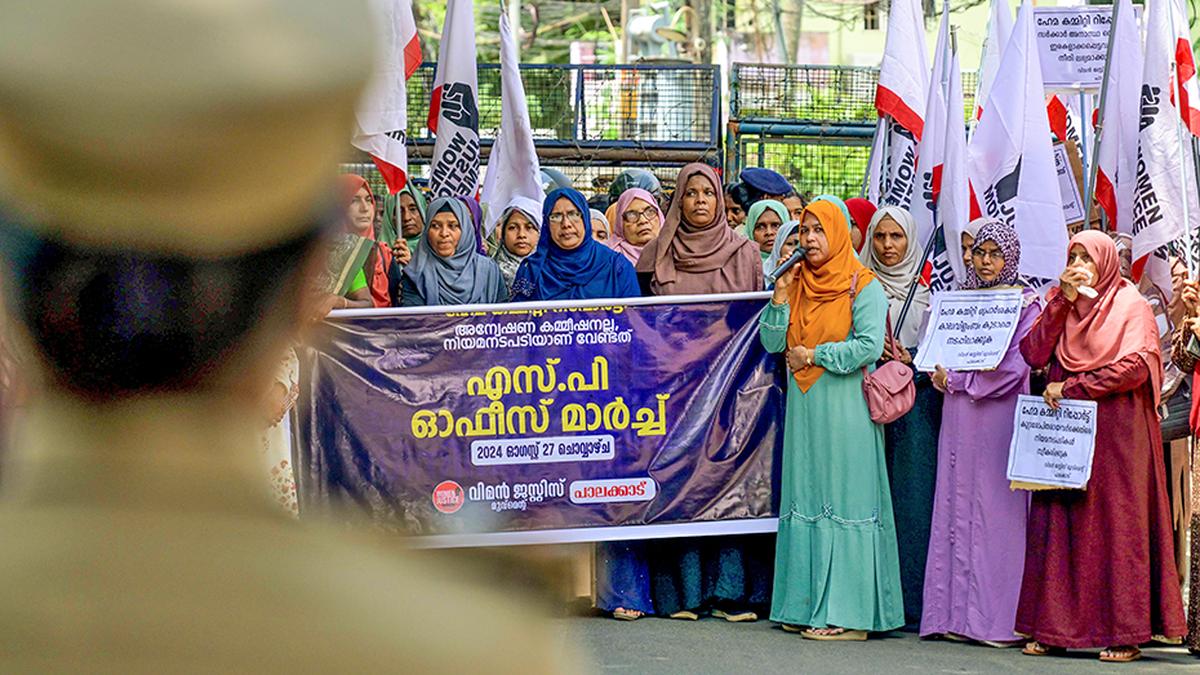As a woman in my mid 20s, I have often found respite from the ‘outside’ at home. My hometown never failed to soothe me but at the same time in various instances, it had been site of discrimination based on gender and generation. The element of gender and generation had been an important element to further the sociological understanding of family. Family had been largely viewed as an institution having a basic structure and function. Feminists made an intervention in the sense that there should be a difference between the family and the household, in order to understand discrimination better. It is through the ideas promoted and propagated by the family that gender and generation become stable within the household. The other name for family therefore could be patriarchy that designs establishes and maintains the gender and the generation gap. Frankly speaking both gender and generation had been highly active in limiting the mobility and agency of women.
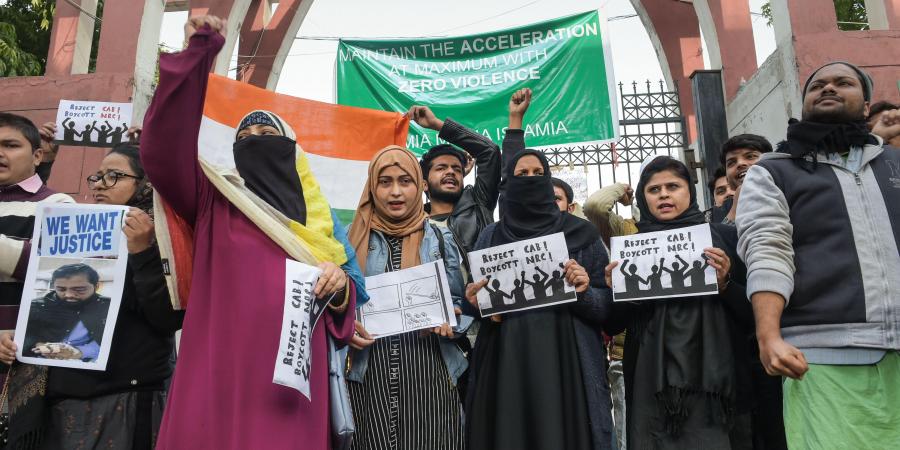
In these times where the very idea of a nation and its citizen is at stake, with the state and its police, its saffron ideologues, destroying the culture of democracy, I had to look back beyond the barricades. For the longest time, I thought if we were all out on the streets reclaiming our rights as citizens, would it be correct to simply ignore what homes have to say? The homes are as we all know are microcosms of the nation. Its through the family that the state creates the ‘docile bodies‘.
Feminists had therefore raised the slogan ‘the personal is political’. Our ideas of belonging to a nation and knowing our rights as citizens fledge at home before anywhere else. The home nestles the idea of being a responsible citizen. However, as the nation today is subjugated by fascism, how do homes in their so called hearth respond to it? Lets have a look in the light of the recent anti NRC-CAA protests that is bringing the question of citizenship back to the hearth as families are being blatantly targeted.
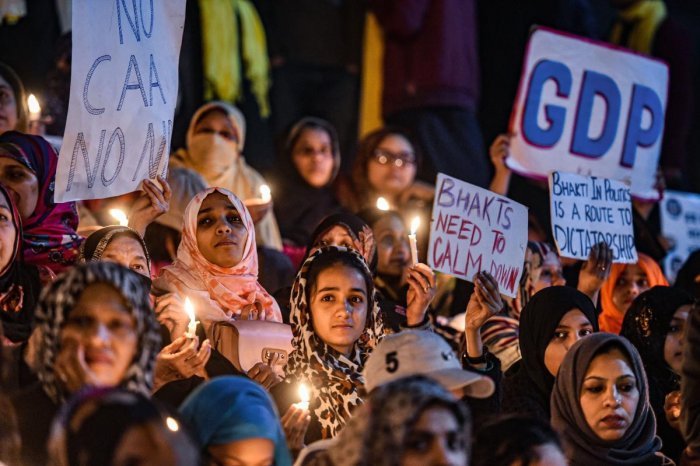
Familial Identities
Family identities are now being attacked because some communities are considered less legitimate than others. Some families carry ‘abject bodies’, not citizens in spite of the former living in this land for generations. As a feminist, I have deliberately interviewed more women (mothers) who had been witness to their sons and daughters participating in the ongoing protests as women are positioned differently in the family vis-a-vis the nation and the man. I chose a feminist standpoint because such a position helps in viewing oppression and the oppressor in the light of the struggle against patriarchy.
The other name for family therefore could be patriarchy that designs establishes and maintains the gender and the generation gap. Frankly speaking both gender and generation had been highly active in limiting the mobility and agency of women.
Our mothers had been instrumental in not only enabling us to become aware of the privilege/disadvantage that we have, fight out of it, but also had at times been fore-bearers of patriarchy, they are themselves subjected to. As feminists, it would be wrong to disregard the efforts and sacrifices that our mothers have taken for us along with others to make us what we are. Solidarity starts from home.
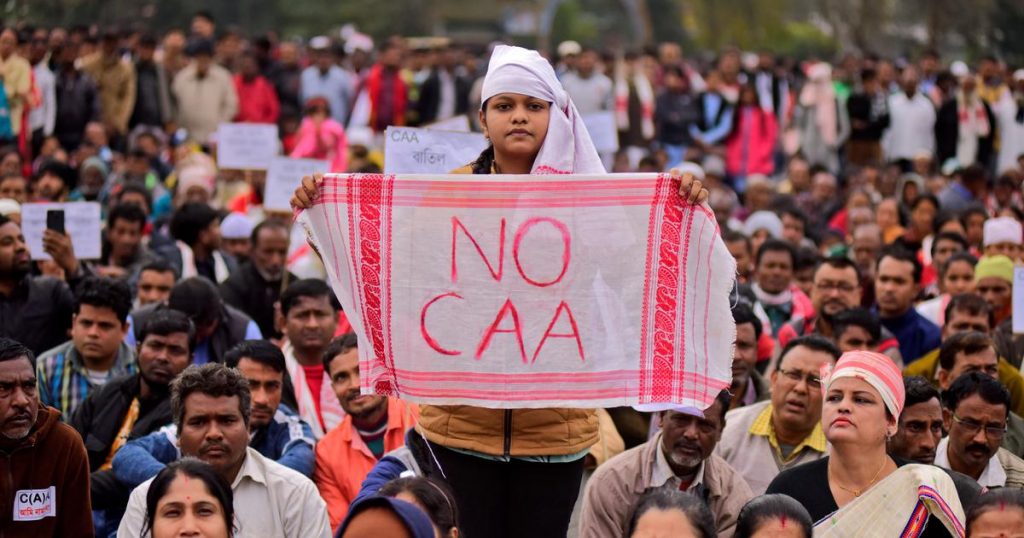
Generating And Mitigating Gaps
Mrs. Reshma Naseem is a 50 year old teaching at a school in Ranchi and a mother of two. Her older daughter is my classmate in college, and has been registering her protest against the government in her own right. On being asked about how she feels to see the youth out on the streets, her voice on the phone gave off her spirited support to the movement. She feels it is a big responsibility on the part of the youth to carry the movement forward. She views the battle no less passionate than the freedom struggle. She is especially moved by the ways in which women had come to the forefront to give voice to the protests.
‘I don’t have words to express my gratitude to the women participating, it is commendable. Few years back women were molested, and silenced. Now its a completely different picture. Now it’s thinkable to voice ourselves without fear,’ said she. Her devotion to Allah had helped her to be hopeful about humanity. She shared her bitter encounters with religious discrimination and had felt there is a deliberate antipathy towards the minority that is being promoted by the religious fanatics. She believes that social media had advanced country-wide awareness and participation that was lacking during major movements at her times. However she also had her share of motherly concerns when it came to her daughter’s participation. As her daughter lives away from her, security is what she was worried about. But her message to her daughter was clear, ‘I was very firm about her participation, that she should go out, loud and clear and not deter from her opinion. She should defiantly take stand of her own. It should be a tough fight till the end’.
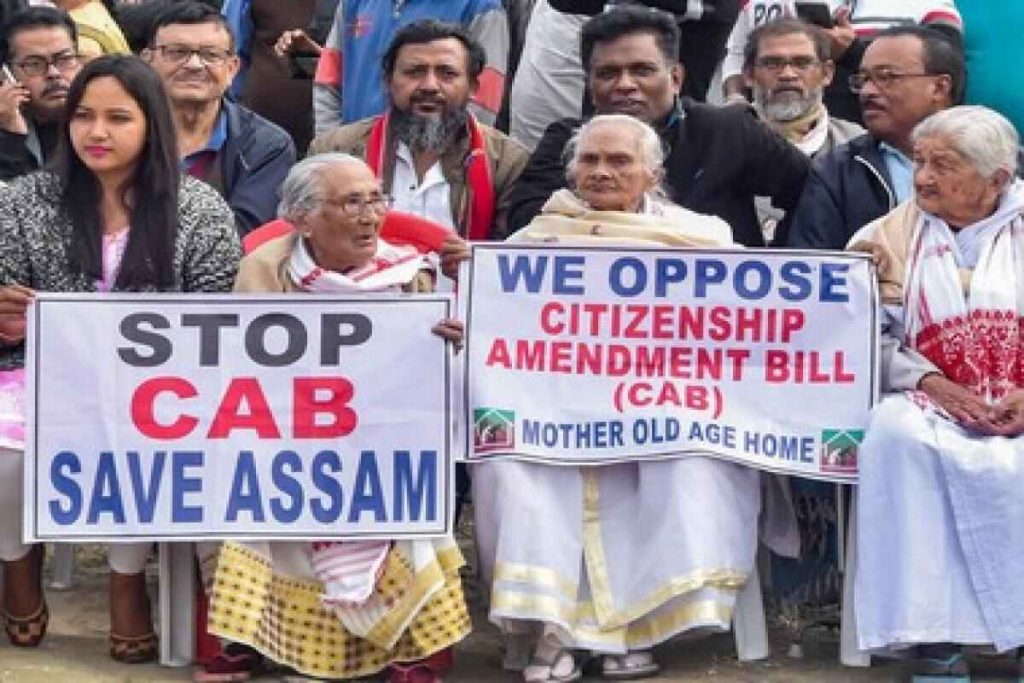
Mr. Pradeep Gooptu is an independent researcher and writes extensively on business and economics in the leading newspapers of the country. His son had been detained on several occasions by the Delhi Police during the protests. While mailing Mr Gooptu on his perceptions on such a wide scale participation of the youth in the protests, I could sense every inch of optimism in his views. He writes, ‘My generation and the generation represented by my parents have no hesitation in accepting that only the voice of the youth now stands between our Indian identity and disaster. We are amazed by the response.‘
He views expressing dissent fearlessly in the streets and every governed space as signs of our ‘maturing democracy’ that challenges the action of the parliament. On asking about the uniqueness of this particular movement Mr Gooptu critically recollects his yesteryear where he was witness to student uprising in the Calcutta of late 60s. He views the latter as being localised responses to the erstwhile authoritarian state and the subsequent declaration of the Emergency. Whereas the youth of the 70s looked up to Mao to bring about social and political revolution, the youth today observed Gooptu is better at strategising.
‘This generation resists prejudice and hatred better,’ he stated. He believes women’s participation has always provided a human and compassionate face to public protest. On being asked about how reliable could be the state machineries in ensuring human handling of its dissenting citizens, Mr Gooptu observed it depends on the nature of the state and the political parties taking control of the same. He rightly said that the extent of violence depends from one state to another depending on their political propaganda. His message to his son and the youth would be to be alert and work for and with enlightened minds till we achieve what we aspire for.
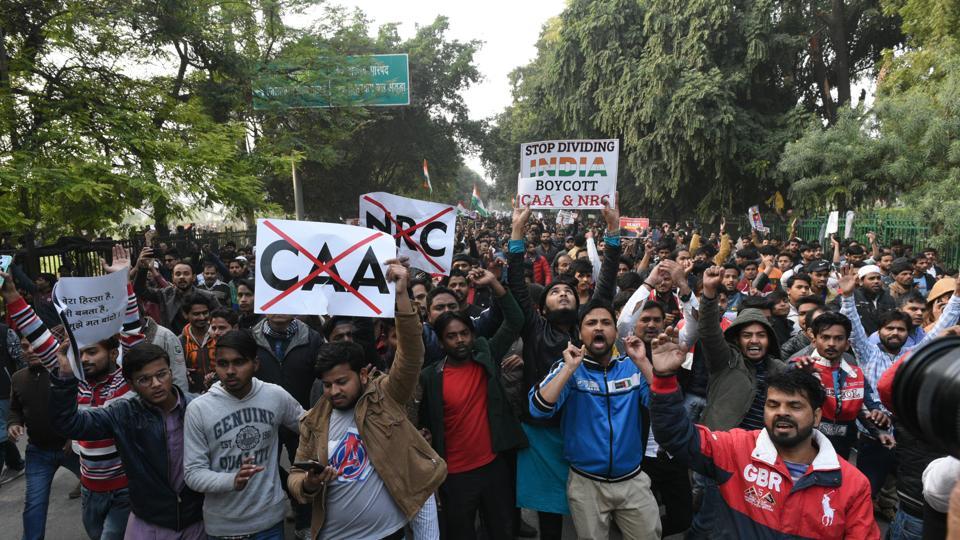
Mrs. Sumita Chatterjee is in her late 50s. She is a resident of Kolkata and a mother of two. She calls herself a homemaker and believes a housewife’s retirement plans are a myth. Her daughter had been visibly active in the political scene and had organised major events at her campus. Mrs. Chatterjee knows me personally and it was only after I stopped recording that she actually spoke her heart out. She believes the current government is too scared to face the harsh reality of unemployment inflation rape cases in the country and the recent Act is a diversion not only from these, but also from the constitutional values that our nation stands on.
She criticised the government of being anti-people and shamelessly resorting to vote bank politics. As the Act blatantly attacks the question of identity and existence, youth participation in the protest is only natural, said she. The fact that protests are so long drawn in all the campuses and the cities is reflected upon the extent to which the youth especially women of today are nailed to the wall. However, she views the protests largely happening in the urban space signifies our respective privileges that have enabled us to take on the streets. She views the draconian measure as an unprecedented blot on our democracy and has no such hopes on the police to act democratically; instead she believes the question of security has largely become the onus of the individual. She voiced her concern about the safety of her daughter but stands by her decision to continue resisting the government through peaceful means.
Mrs. Beenu Dewan is a resident of Delhi and had never shaken an inch from her belief in the constitution. She is currently a homemaker and a mother of two. Her daughter is my classmate and is highly vocal about her disdain to right wing masculinity. Mrs. Dewan very reasonably pointed out the political culture she had been a part of during her phase of activism being very different from nowadays though she reminds me police atrocity had been the same through the ages. She had been witness to the Anti-Mandal protests in Delhi and is no alien to inhuman handling of protestors by the police.
Though the feminist battle to reclaim our bodies minds and identities as citizens is long drawn battle that often faces the risk of being sabotaged by nationalist fervour, the gender bias and stereotypes had their moments of destruction albeit in the urban landscape and this work is to remind ourselves of that; our own feminist moments right from the home, to the barricades and beyond.
The government of the day however, she observes, are religious fanatics and have normalised Islamophobia. Political leaders from the BJP have normalised the same through their mindless comments to such an extent that Mrs Dewan finds it embarrassing to face her Muslim friends being a Hindu herself. She remarked that the space for dissent had shrunk and people are being kept in the dark. Though authoritarian measures had been taken by several state heads during the Congress era also, she believes the youth of today are worse off as citizens as they have greater challenges to tackle in the face of Hindutva. Despite so many disadvantages the youth has to face, Mrs. Dewan had been highly appreciative of the country wide mobilization against the Act that they could forge.
‘I had goosebumps watching the women from Jamia speaking to the media…how they protected each other in the face of terror and no one helped them around. I could understand just sitting at home the amount of violence that was unleashed on the students at another part of the city. It is courageous to do something like this. Maybe parents might warn and myself might be worried about my daughter’s safety, but if she is willing, she shouldn’t be stopped. Her father doesn’t agree to the protests so there is an already established political faction within the household itself,’ Mrs. Dewan said. Whatever the method of protest, it should be registered nonetheless asserted she.
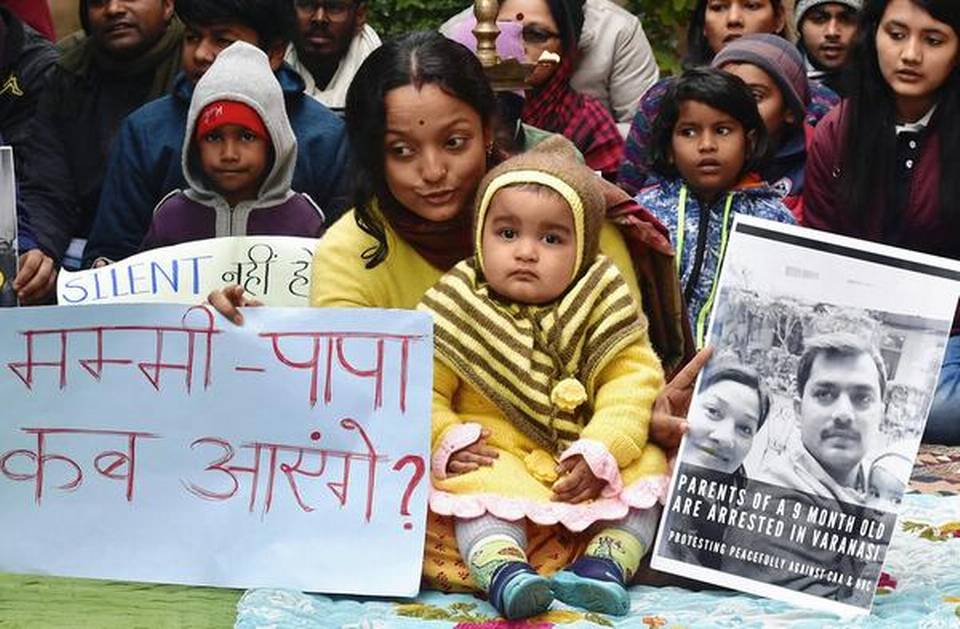
Mr. and Mrs. Bazari are residents of Tinsukia in Assam and had been extremely enthusiastic about voicing their opinions on the ongoing protests. Mr. Manoj Bazari is a businessman and Mrs. Sangeeta Bazari is a homemaker both in their mid 50s. My friend who happens to be in the same department with me, told me her parents had been living for generations in Assam and in the course of the telephonic conversation I could make out how the family had been witness to both the Assam Agitation in the 80s and the ongoing protests against the CAA in Assam that had seen escalating violence in the recent times.
The Bazaris recollect how violent the protests had been during both the Mandal protests as well as the Assam Agitation, but also pointed out that due to the advancement of communication and media, information gets easily spread, and that had helped large scale mobilization of the anti CAA protests of late. However, it is for the present nature of the government that they had cautioned my friend from joining the protests as the latter too was detained by the Delhi police. They had supported the non violent students’ participation in the protest and had been equally enthralled by the growing visibility of women in the movement.
Also read: How Does The Citizenship Amendment Act Affect Adivasis?
Mrs. Bazari reminded me how women too faced equal brutality from the police during Indira Gandhi’s regime, though they were lesser in numbers. They believe education and the freedom to choose one’s profession had made women upwardly mobile and also voice themselves better as citizens. However, the concerns they share are probably universal now in India as they feel the government is undemocratic. In Assam, they stated the shops are still lying closed and law and order had reached the brink of collapse as lives are still at a standstill. They feel the government had closed the slightest available space for negotiation and worse the only way to make ourselves heard is through prolonged peaceful protest.
Mrs. Hashmat Jahan is a resident of Gaya in Bihar. She is 48 and works at home. Her son had been an exceptional scholar and student activist for years working in Delhi and she was more than warm in receiving me on the phone. On being asked about how she feels to witness one of the most turbulent youth movements in the recent times her responses warmed my heart. She was extremely positive despite the police atrocities, about the large scale mobilizations in the campuses and was especially appreciative of the way the women reclaimed their space and voice in the protests against the government.
In this regard, she said, ‘In the process, they will unsettle a lot of misconceptions and stereotypes especially when it came from their guardians. The women had risked their lives and honour to fight the government. My heart goes out to the ones who had been brutalised. No one must face such a trial as the one faced by Aishe Ghosh in JNU only for protesting against fee hike. Where will the students get the resources to heal themselves?’
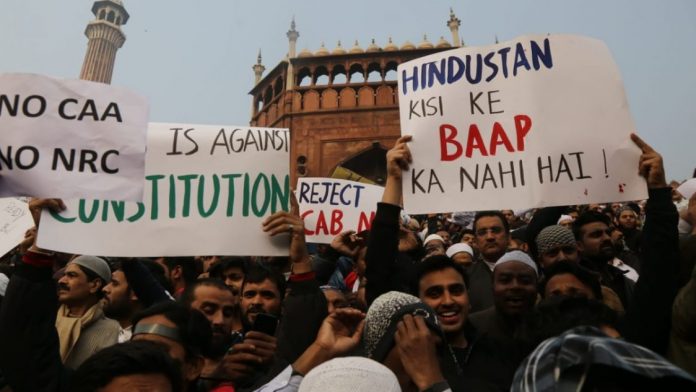
She believes the society had become more intolerant and those voicing their opinions are systematically targeted. In these tensed situations as perpetrated by the government, resistance is the only path through democratic means. She states that the youth must help each other out to ensure each other’s safety, educate themselves and keep protesting till the government bends itself to the constitutional values. She hopes to see her ‘mulk’ back in order and stability, and the government to concentrate more on urgent issues like women’s safety rather than dividing the nation on the lines of religion.
Conclusion
As I had already argued, gender and generation had given legitimacy to familial ideals and patriarchy, however, could also be instrumental in challenging the same. Today when the nation affects all across gender and generation and homes are being existentially threatened, what we see today isn’t just a movement but paradigm shift.
Also read: Why Are Feminists Opposing The Citizenship Amendment Act?
In these times of resistance, what we also see are solidarities active and passive cutting across generations. Though the feminist battle to reclaim our bodies minds and identities as citizens is long drawn battle that often faces the risk of being sabotaged by nationalist fervour, the gender bias and stereotypes had their moments of destruction albeit in the urban landscape and this work is to remind ourselves of that; our own feminist moments right from the home, to the barricades and beyond. I no longer need to lie about going for protests and I know there are so many of us going out loud and proud, to reclaim the innumerable spaces (the streets, the nation), days and nights, slogans and posters that our mothers were refrained from writing and exploring. May gratitude be with us.
Featured Image Source: FirstPost
About the author(s)
I am a student of sociology and gender studies. I did my masters in sociology at Delhi School of Economics. However my interest in gender studies had intrigued me to take up this course seriously. Currently I am enrolled for masters at Ambedkar University Delhi. My interest areas lie in researching on the epistemology of protest, nationalism, queerness , the sociology of the family, student politics, work, body and labour. I aspire to write more and bring my insights closer to activism. Intersectional understanding for me had helped me become a better political individual.
